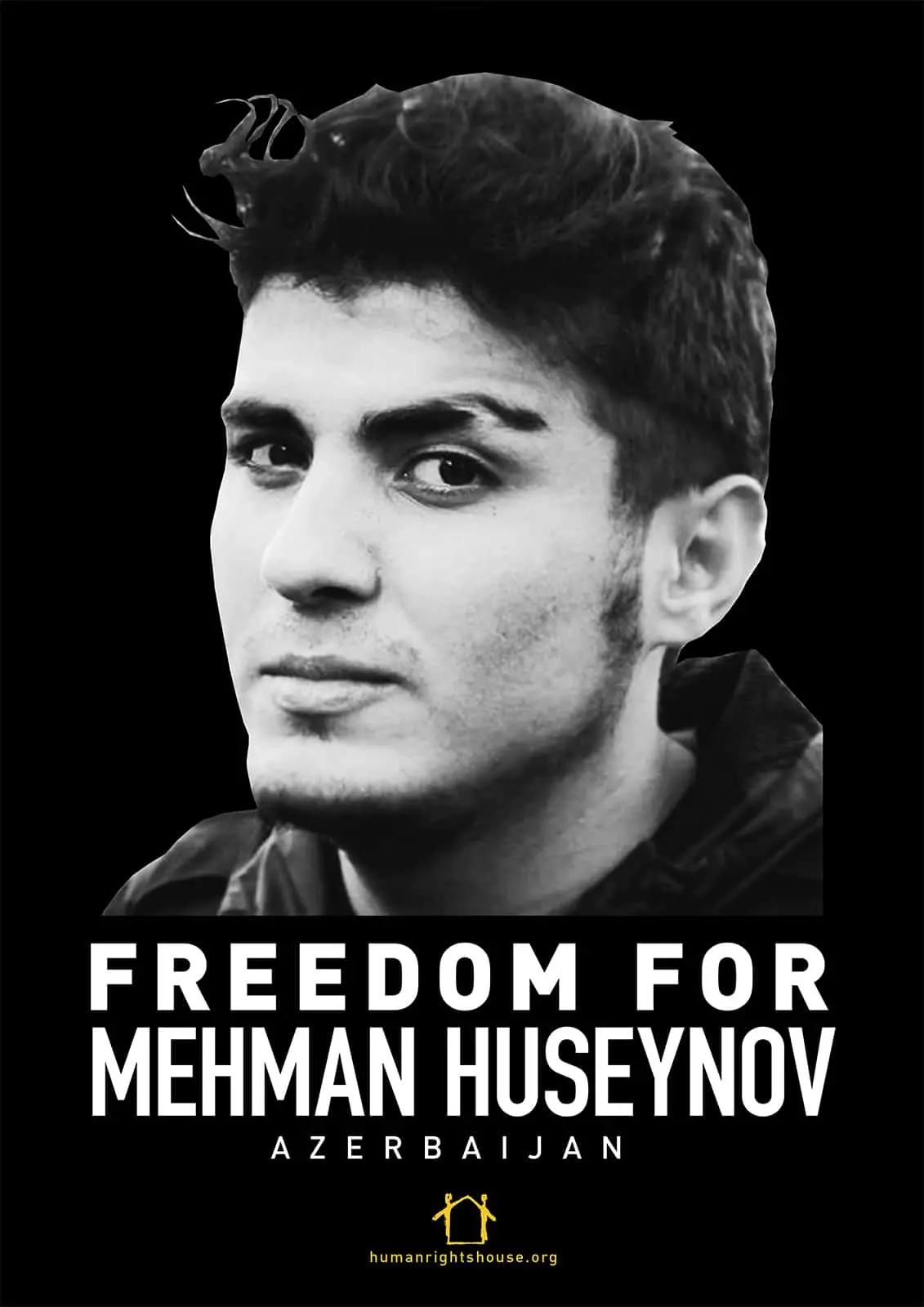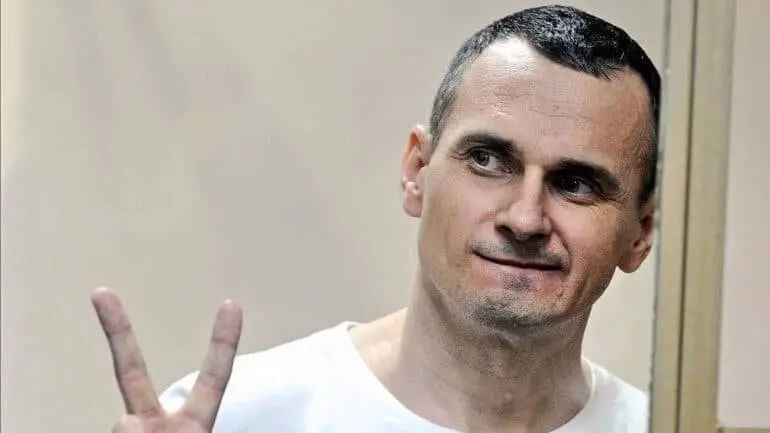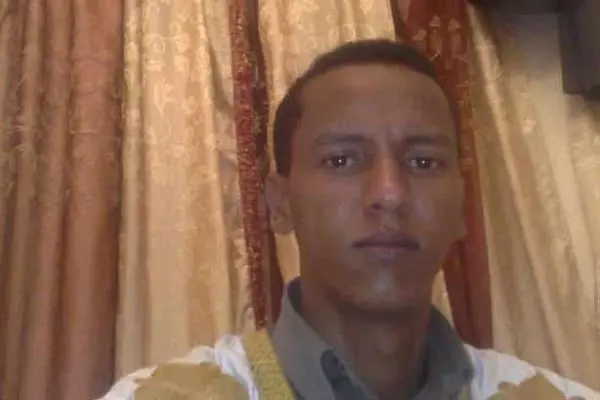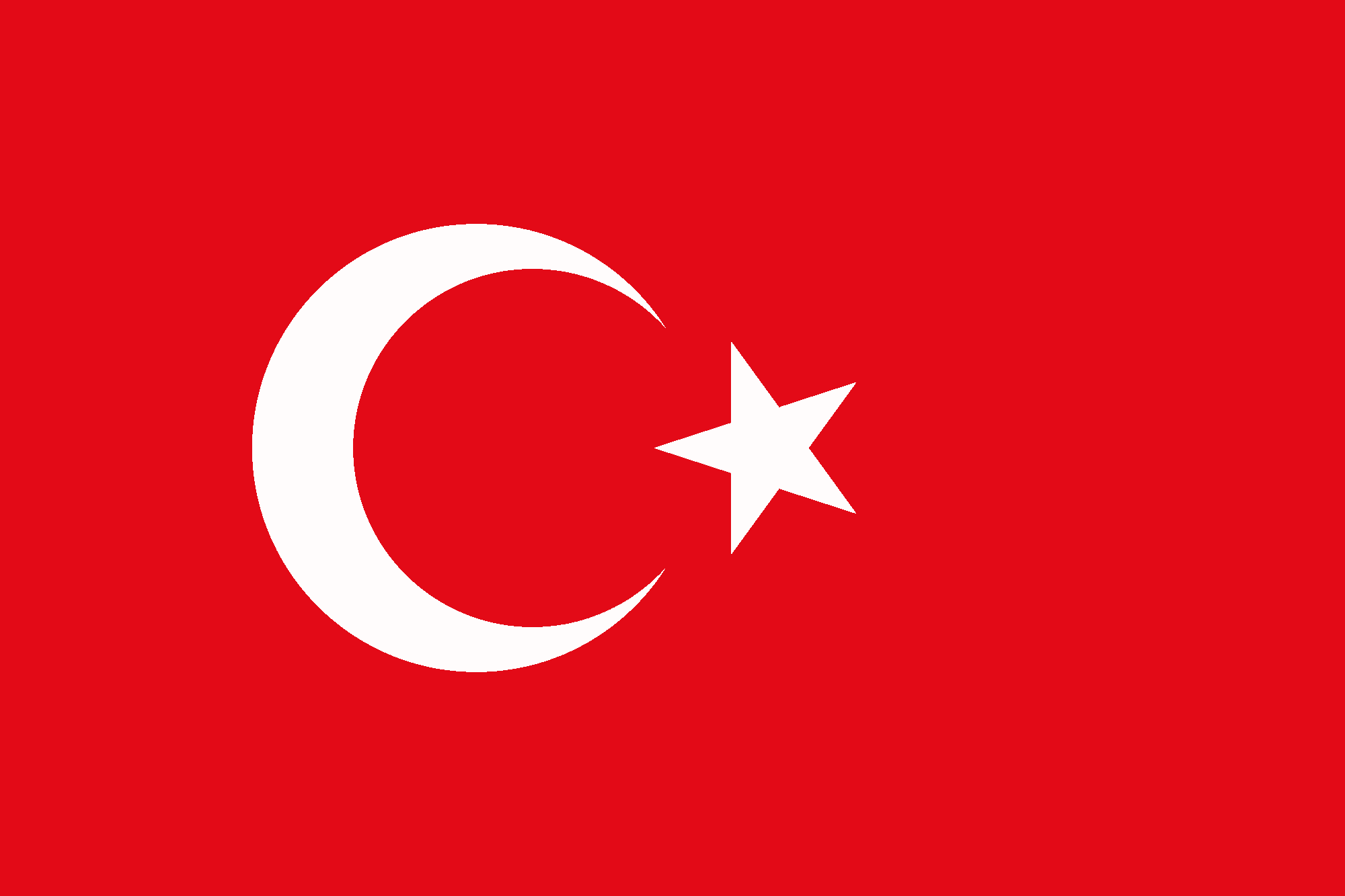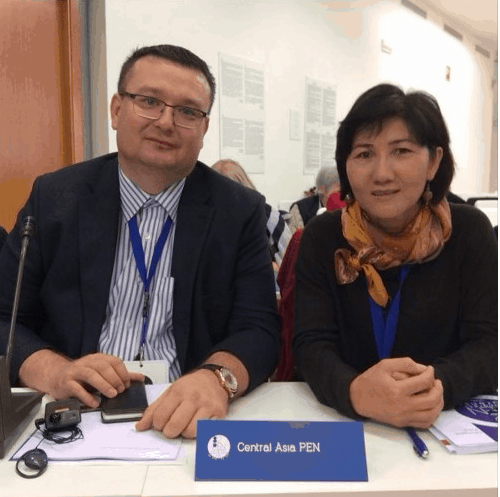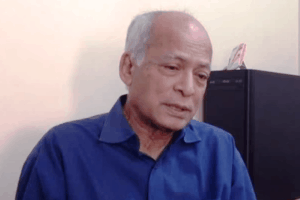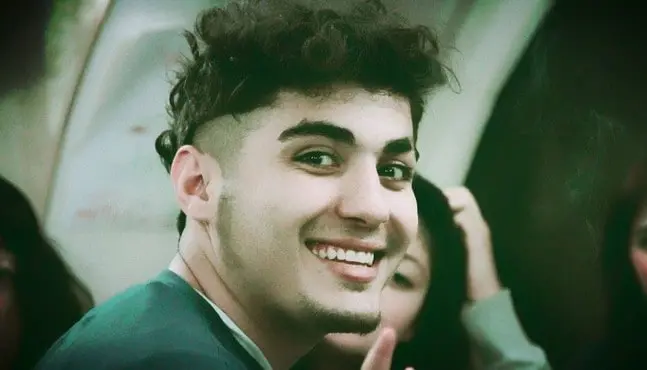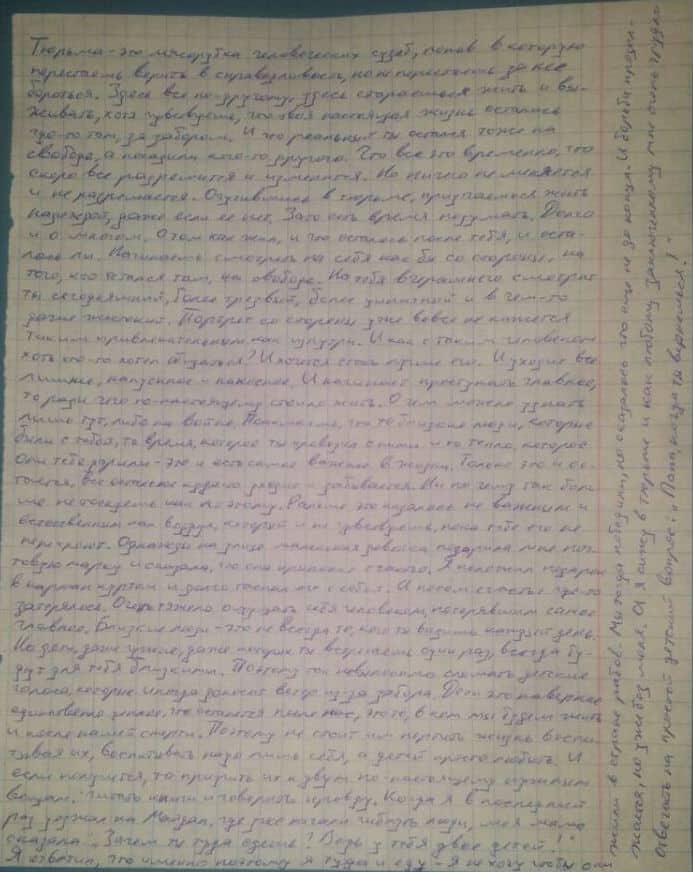 Ukrainian writer, filmmaker, and 2017 PEN/Barbey Freedom to Write Award-winner Oleg Sentsov is serving a 20-year sentence in a Siberian penal colony on charges of terrorism that international observers believe were trumped up to silence his protest of the Russian annexation of his native Crimea. After learning that he was to receive the award, Sentsov managed to get a letter to PEN America out from his prison and into the hands of his cousin, Natalya Kaplan, who accepted the award on his behalf at the PEN America Literary Gala in New York City on April 25, 2017. Below is an English translation, provided by PEN America, of the letter, followed by the Russian-language version. A larger version of the original handwritten letter is available here.
Ukrainian writer, filmmaker, and 2017 PEN/Barbey Freedom to Write Award-winner Oleg Sentsov is serving a 20-year sentence in a Siberian penal colony on charges of terrorism that international observers believe were trumped up to silence his protest of the Russian annexation of his native Crimea. After learning that he was to receive the award, Sentsov managed to get a letter to PEN America out from his prison and into the hands of his cousin, Natalya Kaplan, who accepted the award on his behalf at the PEN America Literary Gala in New York City on April 25, 2017. Below is an English translation, provided by PEN America, of the letter, followed by the Russian-language version. A larger version of the original handwritten letter is available here.
Letter to PEN America from Oleg Sentsov in Prison:
Prison is the meat grinder of human destinies; having fallen into it, you stop believing in justice but don’t stop fighting for it. Here everything is different, here you try to live and survive, although you feel that your real life has been left somewhere, there, beyond the fence. And that the real you has also been left at liberty, and someone else was put in jail. That all of this is temporary, that soon everything will be resolved and change. But nothing is ever resolved, nothing changes.
Finding yourself in prison, you learn to live on hope, even when there is none. But there is time to think. Long, and about many things. About how you lived and what’s left after you, and if it still remains. You begin to look at yourself as though from the other side, at the one who stayed there, in freedom. The you of today looks back at the you of yesterday, more sober, more shrewd, and in some ways even more cruel. The portrait from the outside does not seem so attractive from the inside. How could anyone want to communicate with such a person? You want to become better than him.
And all that is superfluous, exaggerated, and superficial disappears. And the main thing begins to come through, that which is really worth living for. About which you can only learn here, or at war. Understanding that those close to you, the time that you spent with them, and the warmth that they gave you—this is the most important thing in life. Only this remains, all else disappears and is forgotten. You don’t yearn for anything as much as you yearn for this. Earlier it seemed unimportant and natural, like air, which you don’t notice until it is taken away.
One day outside a young girl gave me a postage stamp and said that it would bring happiness. I put the gift in the pocket of my coat and carried it with me for a long time. And then happiness got lost somewhere. It’s very hard to feel like a person when you’ve lost the most important thing to you. The people who are dear to you are not always those that you see every day. But children, even other people’s children, even those that you meet one time, will always be dear to you. And this is why it is so unbearable to hear children’s voices, which sometimes the wind carries in from beyond the fence.
Children are probably the most valuable thing that will remain after us. We will live on in them even after our death. Therefore we must not spoil their lives by educating them; we should educate ourselves, and simply love our children. And if at all possible, teach them these two truly necessary things: to read books and to speak the truth.
The last time I went to the Maidan, where people had already begun perishing, my mother said, “Why are you going there? You have two children!” I answered that it was precisely because of that that I was going there—I don’t want them to live in a country of slaves. We won then, but it proved not to be the end. And the struggle continues, but now without me. I’m in prison and like any prisoner it is very difficult for me to answer a simple childish question: “Daddy, when are you coming home?”
####
Тюрьма – это мясорубка человеческих судеб, попав в которую, перестаешь верить в справедливость, но не перестаешь за нее бороться. Здесь все по-другому, здесь стараешься жить и выживать, хотя чувствуешь, что твоя настоящая жизнь осталась где-то там, за забором. И что реальный ты остался тоже на свободе, а посадили кого-то другого. Что все это временно, что скоро все разрешится и изменится. Но ничего не меняется и не разрешается.
Очутившись в тюрьме, приучаешься жить надеждой, даже если ее нет. Зато есть время подумать. Долго и о многом. О том, как жил и что осталось после тебя, и осталось ли. Начинаешь смотреть на себя как бы со стороны, на того, кто остался там, на свободе. На тебя вчерашнего смотрит ты сегодняшний, более трезвый, более умный и в чем-то даже жестокий. Портрет со стороны уже вовсе не кажется таким привлекательным изнутри. И как с таким человеком хоть кто-то хотел общаться? И хочется стать лучше его.
И уходит все лишнее, напускное и наносное. И начинает проступать главное, то, ради чего по-настоящему стоило жить. О чем можно узнать лишь тут, либо на войне. Понимание, что те близкие люди, которые были с тобой, то время, которое ты проводил с ними и то тепло, которое они тебе дарили – это и есть самое важное в жизни. Только это и остается, все остальное куда-то уходит и забывается. Ни по чему так больше не тоскуешь, как по этому. Раньше это казалось не важным и естественным как воздух, который и не чувствуешь, пока тебе его не перекроют.
Однажды на улице маленькая девочка подарила мне почтовую марку и сказала, что она приносит счастье. Я положил подарок в карман куртки и долго носил его с собой. А потом счастье где-то затерялось. Очень тяжело ощущать себя человеком, потерявшим самое главное. Близкие люди – это не всегда те, кого ты видишь каждый день. Но дети, даже чужие, даже которых ты встречаешь один раз, всегда будут для тебя близкими. Поэтому так невыносимо слушать детские голоса, которые иногда заносит ветер из-за забора.
Дети – это, наверное, самое ценное, что остается после нас, это те, в ком мы будем жить и после нашей смерти. Поэтому не стоит им портить жизнь, воспитывая их, воспитывать нужно лишь себя, а детей просто любить. И если получится, приучить их к двум по-настоящему нужным вещам: читать книги и говорить правду.
Когда я последний раз заезжал на Майдан, где уже начали гибнуть люди, моя мама сказала: “Зачем ты туда едешь? Ведь у тебя двое детей!”. Я ответил, что именно поэтому я туда и еду – я не хочу, чтобы они жили в стране рабов. Мы тогда победили, но оказалось, что еще не до конца. И борьба продолжается, но уже без меня. А я сижу в тюрьме и как любому заключенному мне очень трудно отвечать на простой детский вопрос: “Папа, когда ты вернешься!”

